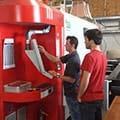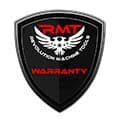In the fast-paced and highly competitive world of manufacturing, metal fabrication shops are under constant pressure to deliver higher quality products, reduce costs, and improve turnaround times. One of the most effective ways to achieve these goals is by incorporating automation into the fabrication process. From robotic welding arms to automated cutting systems and software-driven inventory management, automation is reshaping how fabrication shops operate.
Below are some of the key benefits of adding automation to a metal fabrication shop.
Increased Productivity and Efficiency
Perhaps the most immediate and obvious benefit of automation is the dramatic increase in productivity. Machines can operate 24/7 with minimal downtime, allowing for continuous production that would be impossible with a human-only workforce. Automated systems can also perform repetitive tasks much faster than humans, leading to higher throughput and reduced cycle times.
For example, CNC (Computer Numerical Control) machines can cut, bend, and shape metal parts with high speed and precision, requiring minimal manual input once set up. Similarly, automated welding systems can complete welds consistently across large production runs, reducing the need for frequent repositioning or quality checks.
Consistent Quality and Precision
Quality assurance is critical in metal fabrication, especially when fabricating parts for industries such as aerospace, automotive, or medical devices where tolerances are tight. Automation significantly reduces human error, delivering consistent, repeatable results across batches.
Advanced automation tools are equipped with sensors, vision systems, and real-time monitoring capabilities that ensure each component meets exact specifications. This level of consistency not only minimizes waste and rework but also enhances the overall reputation of the shop for delivering high-quality products reliably.
Labor Force Optimization
A significant concern faced by shop owners when contemplating adding automation is the impact that doing so will have on existing jobs.
However, rather than replacing workers, automation allows shops to better allocate human resources. Skilled labor can be redirected from repetitive or hazardous tasks to areas that require critical thinking, creativity, or technical expertise.
In fact, automation can make the metal fabrication industry more attractive to younger generations who are drawn to high-tech work environments. Workers are more likely to find satisfaction in roles that involve programming robots, interpreting data, or performing high-level troubleshooting rather than standing at a manual cutting station all day.
Improved Worker Safety
Metal fabrication involves working with high temperatures, sharp edges, heavy machinery, and sometimes hazardous materials. By automating the most dangerous and physically demanding tasks, shops can significantly reduce the risk of workplace injuries.
For instance, robotic arms can handle hot or heavy components, laser cutters can operate in enclosed systems with safety interlocks, and automated lifting systems can move bulky sheets without straining workers. As a result, employees can focus on safer, higher-value tasks such as programming, inspection, and quality control.
Reduced Operational Costs
Although the upfront cost of automation can be significant, the long-term savings can be substantial. Automated systems can reduce labor costs by handling tasks that would otherwise require multiple shifts or a larger workforce. Additionally, they lower material waste by improving precision and reducing mistakes.
Energy efficiency is another area where automation can offer savings. Machines that are optimized for performance can reduce idle time and consume energy only when needed. Predictive maintenance systems can also help avoid unexpected downtime and expensive repairs by identifying potential issues before they become major problems.
Enhanced Flexibility and Scalability
Modern automation technologies are highly adaptable and can be reprogrammed or retooled for new products, making it easier for shops to respond to changing market demands. Whether it’s a custom one-off job or a large production run, automated systems can be configured to handle a variety of tasks with minimal setup time.
This flexibility also makes it easier to scale operations. As demand grows, shops can add more machines or upgrade existing systems to boost capacity without dramatically increasing overhead.
Better Data Collection and Process Control
Automation is often integrated with software systems that track every aspect of production, from raw material usage to cycle times and quality metrics. This data can be used for continuous improvement, identifying bottlenecks, monitoring machine performance, and forecasting future needs.
Advanced Manufacturing Execution Systems (MES) and Enterprise Resource Planning (ERP) platforms can interface with automated equipment to provide a real-time view of operations. This level of visibility allows managers to make more informed decisions and proactively address issues before they impact production.
Improved Lead Times and Customer Satisfaction
In an era where customers expect fast turnaround and on-time delivery, automation gives shops a crucial competitive edge. Shorter production cycles mean faster lead times, and consistent quality means fewer delays due to rework or returns.
By improving delivery performance and maintaining high quality, metal fabrication shops can strengthen customer relationships and attract new business through word-of-mouth and reputation.
Sustainability and Waste Reduction
Sustainability is increasingly important in manufacturing, and automation supports greener operations in several ways. Precise cutting, forming, and welding reduce scrap metal and material waste. Energy-efficient machines lower carbon footprints, and automated tracking can ensure optimal resource utilization.
Shops that invest in automation can also better comply with environmental regulations and may be eligible for green certifications or incentives.
Competitive Advantage in a Global Market
Automation positions metal fabrication shops to compete not only locally but also globally. As overseas manufacturers adopt advanced technologies, domestic shops must keep pace to maintain market share.
By investing in automation, shops can offer competitive pricing, faster delivery, and superior quality—traits that are essential for winning and retaining contracts in today’s interconnected world.
Finding a Trusted Automation Equipment Partner
You likely carefully considered your options when selecting the brands and distributors of the various high-ticket machines that inhabit your shop floor. Be sure to take the same consideration when you look for a partner to supply you with automation equipment for those same machines. If you are happy with the suppliers of your machines, check with them first to see if they offer or recommend automation upgrades or accessories. Read as many reviews as possible and try to always talk to owners of the equipment to hear about their experiences with the same systems.
The integration of automation in a metal fabrication shop is no longer a luxury—it’s a necessity for those aiming to stay ahead in an increasingly competitive industry. As technology continues to advance, those who adapt will thrive—those who don’t risk being left behind.







